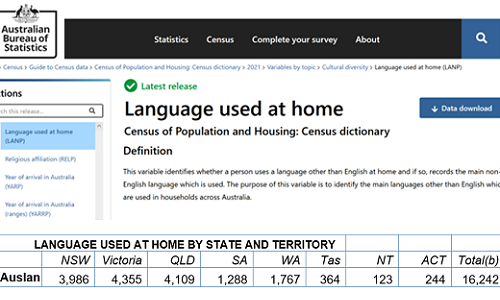Australian Catholic University (ACU) and the Archdiocese of Honiara, Solomon Islands, have received a research grant of nearly $500,000 to lead a ground-breaking project to send sign language teachers into remote communities of the Pacific nation.
The project is being funded through a research grant from a partnership between the governments of Solomon Islands, Australia, and New Zealand.
Led by ACU Associate Professor Dr Mellita Jones and representatives of Catholic Education Authority of the Archdiocese of Honiara, the project will train deaf and hearing people across Solomon Islands in AUSLAN, before sending them into remote communities where deaf children and young adults live.
Dr Jones said the ultimate goal was to lead deaf children out of the extreme isolation they felt, and become a pathway to education and employment.
“It can’t just be the deaf children who learn sign language, but the communities, so the ultimate outcome is to give those deaf children an opportunity to be active members, which is what people need for good mental health, prosperity and productivity,” she said.
Deafness is one of the most common disabilities reported in Solomon Islands, leading to high levels of poverty-related diseases such as malaria, meningitis, rubella and otitis media. There is currently no research to determine the exact numbers of deaf people in the country.
There is only one educational facility supporting deaf youth in Solomon Islands, the San Isidro Care Centre, operated by the Catholic Education Authority in Honiara.
Sister Rollo of the Missionary Sisters of the Society of Mary said young people who came to live at the San Isidro Care Centre experienced a profound change in their lives when they were able to communicate for the first time.
“When they come to San Isidro, it’s their first time to even get to know their name, to write their name, to spell their names,” Sr Rollo said.
“It’s very touching for us as teachers.”
Sr Rollo said deaf youth were often “the least and the last” in their communities.
“They are the least to be given the opportunity, in most cases they’re either given to other relatives, or are expected to stay at home, look after the house, or work in the garden, and they are the least and the last to receive any good information because of the difficulty and the barrier in the language.”
Catholic Education Authority secretary Modesta Hasiau said deaf children in Solomon Islands should have equal rights to education and employment opportunities, but it was not the reality.
“It’s just a barrier with the communication that they can’t fully participate in the larger community and society, like with employment and all sorts, but at the end of the day they are Solomon Islanders, they are human beings as well,” she said.
Ms Hasiau said inclusive education would likely be the next big challenge for governments, as community members in Solomon Islands push to have all teachers trained in sign language.
“Studying at San Isidro will be a milestone, and probably an eye opener for the government, so they can see this is very important and adds to what the nation has already written down in our inclusive education policies,” she said.
“We have to touch the families, encourage them to come to the training, to learn how to communicate, especially with those who are deaf, so they can be able to start within their own families and communicate within their own families, and then go out in the wider community. That’s what I see is important from the initial part of this project,” he said.
Dr Jones, who has spent more than a decade leading the unique partnership between ACU and Solomon Islands, is planning to go to the Pacific Island nation once the country’s international borders reopen. She also hopes to take pre-service teachers from ACU to help with the project. She said her work for Solomon Islands had become “very personal”.
“For me it’s not just work anymore, but it’s who I am,” Dr Jones said. “I can use something of the privilege and opportunity that I’ve had in education to bring something of value to their community, and I’ve learned and gained far more than I think I’ve given.”
From Mirage News
But some in Australia expressed fear for the future of indigenous language in the Solomons. These are comments taken from Deafness Forum’s Facebook page:
Leanne: Oh my, at first glance, this is a worry.
Julie: That’s great but make sure to develop their own signed language as they will have different dialect from Auslan.
Andrew: This is wonderful, with the strong proviso that their national sign language/s be encouraged. We’ve seen past colonisations where indigenous groups were taught ASL entirely. These new teachers should be allies
Anna: Need to use their own native sign language and support them and make a strong one but not Auslan (it’s for Australia only).
Brent: I’m gobsmacked they’re introducing AUSLAN at San Isidro Care Centre. This is one of the finest examples of colonisation. In Honiara, the Deaf community uses Solomon Islands Sign Language. In total, I have been to San Isidro Care Center eight times and stayed there for two months. I have produced a documentary to verify that the Solomon Islands Deaf community has its own distinct language. In my opinion, it is sad to see their language being distorted by AUSLAN.
Rodney: And so the onslaught of colonisation continues all in the name of benevolence.

Deaf Australia described the inclusion of a question about Auslan in the Census as a “major win for the Deaf Community.”

